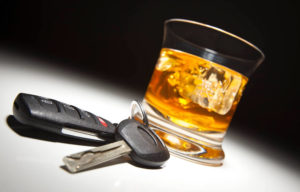
If I am pulled over do I have to do what they say or can I tell them no?
You do not necessarily have to do what they say, but the encounter will probably go a lot smoother if you are cooperative. That being said, however, do not be overly friendly or helpful to the police. So often I see people give consent for an officer to search their vehicle. Please do not do this! An officer has a standard that must be met in order to get a valid search warrant. The second you give your consent for the officer to search the vehicle, anything they find can be used against you and there is no search warrant required. Essentially, you have just made their jobs a lot easier and your life a lot more complicated. However, when an officer is asking you for your license or your identification, be cooperative. Give him the information. So often we see on the news that police encounters turn very contentious and people end up getting hurt. Please keep in mind that that officer has a gun and is trained to use it when he feels threatened. Even still, that officer has other weapons that can be used that may not be very pleasant for someone on the receiving end. My best advise it to be cooperative but once you start thinking that the officer is trying to use your kindness and cooperativeness as a way of getting you to consent to things, stop and say no. If you are arrested call an attorney and allow them to do the rest of the talking for you.
If I get a DWI what happens? Is my license suspended?
If you get a DWI, it is like a normal charge. Typically your license will be suspended but that suspension is not effective that night or even that week. I can not stress enough how important it is to call a lawyer immediately. An attorney should be your first call once you are able to post bond and get out of jail. The reason for the urgency is that an attorney can request an ALR hearing on your behalf. If an ALR hearing is requested within 15 days from arrest, it essentially postpones your driver’s license from being suspended until you have the hearing. That can buy you a lot of time to get an occupational driver’s license in place so you can still drive to and from work during the suspension period. This 15 days, however, is a hard and strict deadline. If you miss it, you out of luck and your license will be suspended 40 days after notice of the suspension. A suspended driver’s license can really cause a lot of upset in one’s life. That is why and ALR hearing is beneficial. An ALR hearing also allows you and your attorney to get a free shot at the arresting officer to see how he/she is going to testify at a trial. It can work in one’s favor and can be helpful with allowing for non-interruption in one’s ability to drive to and from work.
Can I have a DWI taken off of my record?
Before 2017, no. In 2017, the Texas Legislature passed a new law allowing for a first DWI to be eligible for an order of non-disclosure. An order of nondisclosure blocks your criminal records from all entities, but law enforcement or anything with the name “State of”, from seeing your criminal record. You will still have a DWI conviction but you can get it erased from your record. This new law is only applicable to a DWI first.
How long will it take to resolve?
This depends on what county you are being charged in, if this was a DWI first or not, your criminal history, and willingness to take a plea bargain in the case. A good rule of thumb is anywhere from 3-12 months.



